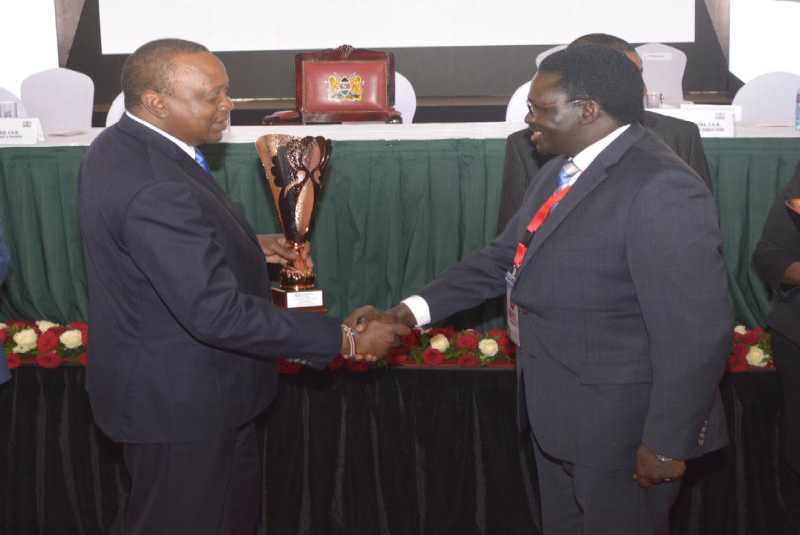×
The Standard e-Paper
Fearless, Trusted News

President Uhuru Kenyatta(left) awards Kabarak Vice Chancellor Vice Chancellor Henry Kiplagat () during the taxpayers awards at KICC on 31/10/18-[ Photo: Beverlyne Musili,Standard]
Even before the ink is dry on the recent tax hikes, the Government wants the taxman to zero in on small businesses and people leading lavish lifestyles and not paying their dues to further grow its revenues.







